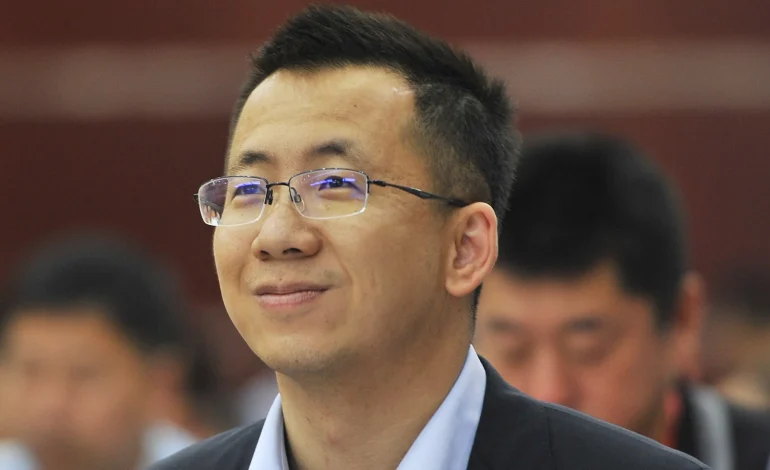TikTok’s Chinese Version Douyin Expands Into Education AI

Introduction
Douyin, the Chinese version of TikTok, is expanding its platform into the education sector using AI-driven tools. The move reflects a growing trend in China to integrate digital technologies into learning, enhancing accessibility, personalization, and engagement for students across the country. By leveraging artificial intelligence, Douyin aims to create adaptive learning experiences, offering content tailored to individual student needs, learning speeds, and knowledge gaps. This initiative aligns with broader national goals to modernize education and promote technological literacy among younger generations.
Education AI Strategy
Douyin’s education AI initiative integrates machine learning algorithms, natural language processing, and recommendation engines to deliver content optimized for each learner. The platform analyzes user interactions, quiz results, and study patterns to provide adaptive lesson plans and targeted practice exercises.
The company has collaborated with leading educational institutions, including Beijing Normal University and Tsinghua University, to curate content and validate the quality of AI-generated lessons. The initiative covers a wide spectrum of subjects, including mathematics, language learning, science, and test preparation. By combining short-form video content with interactive AI features, Douyin seeks to enhance both engagement and knowledge retention.
Market and Policy Context
China’s education technology sector has seen rapid growth, driven by government policies encouraging innovation while regulating online learning. Recent reforms emphasize reducing academic pressure and promoting equitable access to quality education. Douyin’s AI-driven platform is designed to comply with these regulations, offering structured, teacher-supervised learning modules and limiting screen time for younger students.
Analysts note that the integration of AI into education supports China’s strategic goals of cultivating digital literacy and technological competencies. With over 700 million monthly users, Douyin has a vast audience base, enabling rapid dissemination of AI-powered learning tools.
Technological Implementation
The AI platform relies on advanced algorithms capable of assessing student performance and recommending personalized content. Key features include:
- Adaptive Learning Paths: Tailors exercises and video lessons to individual progress, identifying weak areas for additional practice.
- Intelligent Assessment: Uses AI to generate quizzes and tests aligned with curriculum standards, providing instant feedback.
- Content Recommendation: Leverages machine learning to suggest videos and exercises that match student interests and learning styles.

Economic and Industry Implications
Douyin’s expansion into education has implications for the broader edtech sector. The platform’s AI-driven features reduce the need for physical classrooms while offering scalable learning solutions. Companies in online education, tutoring, and content creation may experience increased collaboration opportunities, as Douyin integrates high-quality materials from academic partners into its AI engine.
The initiative also attracts investors seeking growth in AI-based education technology. Market projections indicate that China’s online education sector could reach over 600 billion yuan by 2026, driven by increased adoption of digital learning tools and AI-driven personalization. Douyin’s entry into this market strengthens its position as a leading technology-driven educational platform.
Challenges and Considerations
Despite the potential benefits, several challenges exist. Ensuring the accuracy and quality of AI-curated content is essential to maintain educational standards. Privacy and data security concerns are also critical, given that the platform collects student performance data and usage patterns.
Moreover, equitable access remains a challenge. While Douyin has broad reach, rural and underprivileged areas may lack devices or stable internet connectivity to fully utilize AI learning tools. Policy makers and companies must collaborate to ensure inclusive access and prevent widening educational inequalities.
Global Perspective
Douyin’s initiative may influence international trends in edtech. AI-driven learning solutions are gaining attention globally, with platforms in Europe and North America exploring personalized lesson delivery. China’s large-scale implementation provides valuable insights into the effectiveness of AI for adaptive learning, content engagement, and scalability in densely populated regions.
By analyzing user behavior, engagement metrics, and learning outcomes, Douyin can refine its AI models and set benchmarks for future educational technology solutions worldwide. Partnerships with academic institutions also provide a model for integrating AI into formal learning frameworks without compromising educational quality.
Future Outlook
Douyin plans to expand its AI education platform to cover additional subjects, support higher education content, and incorporate emerging technologies such as augmented reality for interactive learning experiences. The company also intends to collaborate with regional governments and schools to integrate AI-driven tools into classroom instruction.
Experts anticipate that AI personalization will become a standard feature in online education, with platforms like Douyin leading adoption. Continuous improvements in natural language processing, adaptive algorithms, and engagement analytics will allow for more effective learning solutions, ultimately enhancing academic outcomes for students across China.
Conclusion
Douyin’s expansion into education AI demonstrates how digital platforms can reshape learning through personalization, interactivity, and accessibility. By combining AI algorithms with high-quality content and institutional partnerships, the platform addresses the challenges of modern education while aligning with China’s broader strategic objectives. While challenges in equity, quality assurance, and data privacy remain, the initiative represents a significant step toward integrating AI into large-scale educational ecosystems, setting a precedent for both domestic and international edtech innovation.






